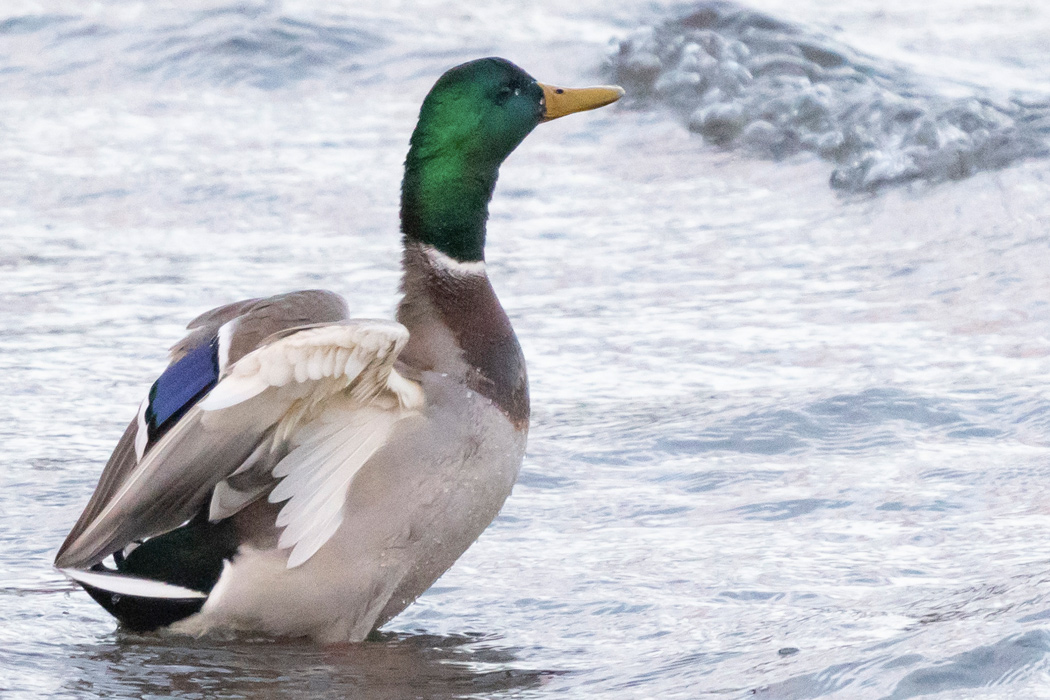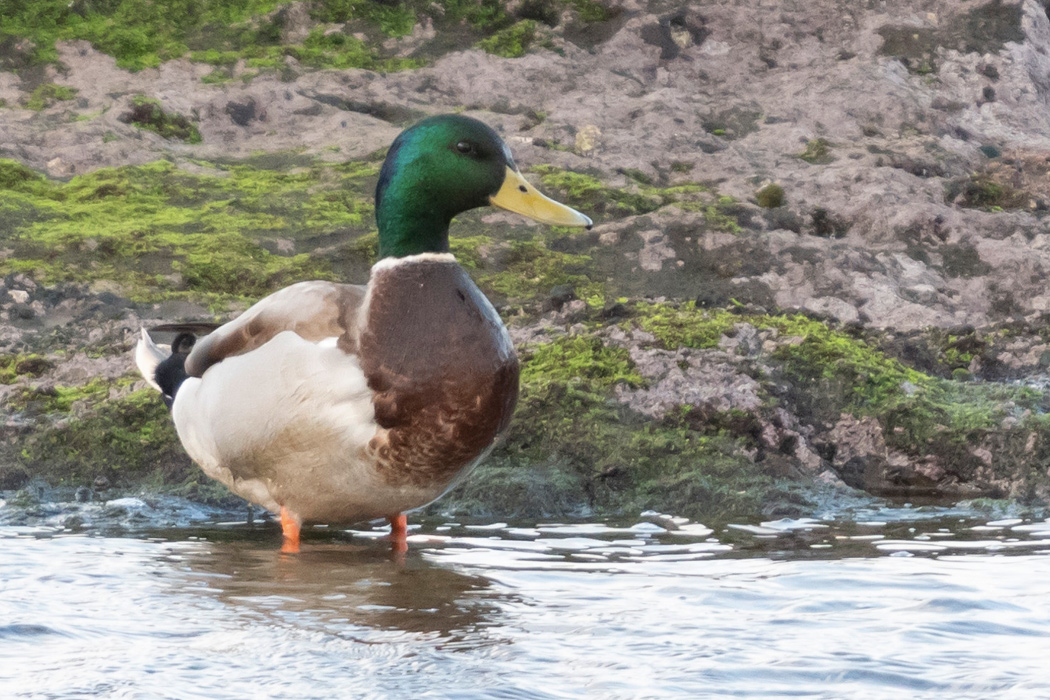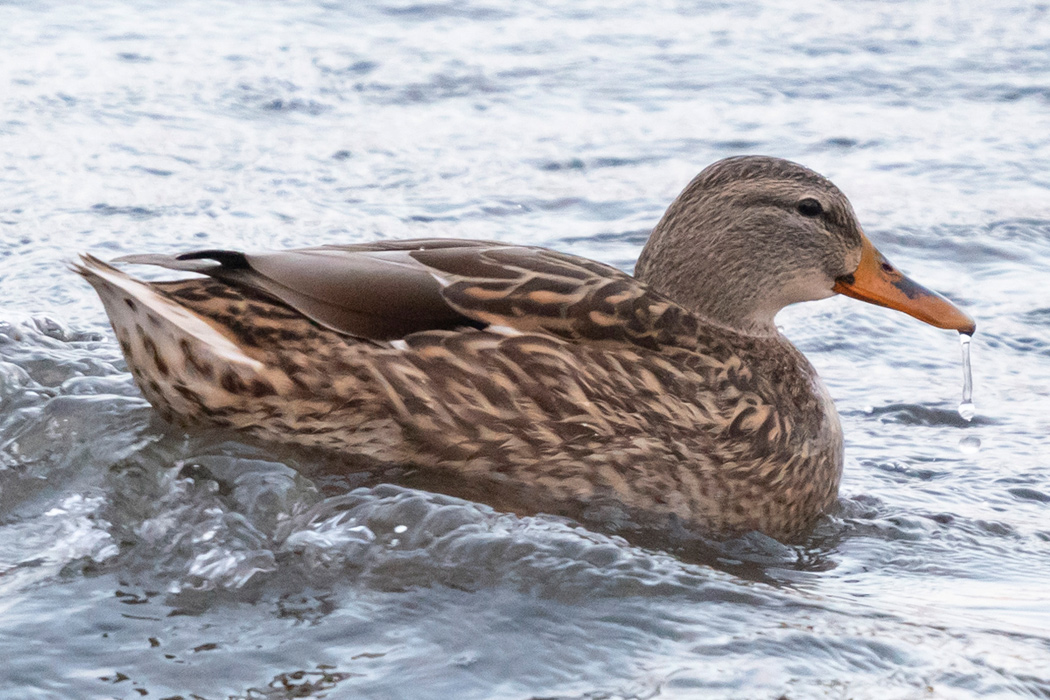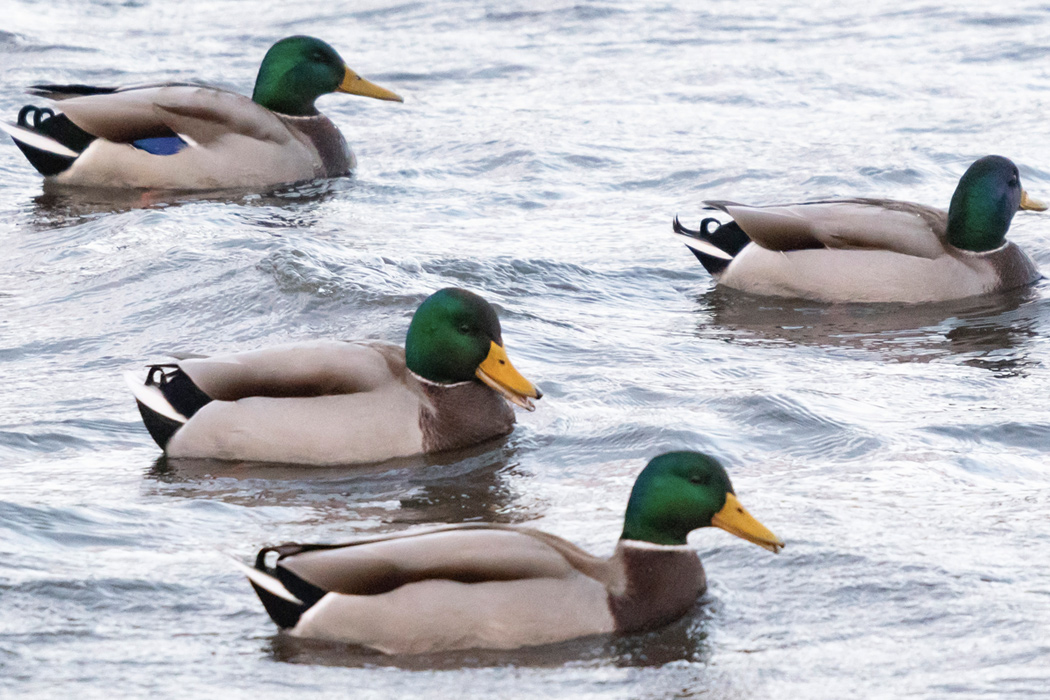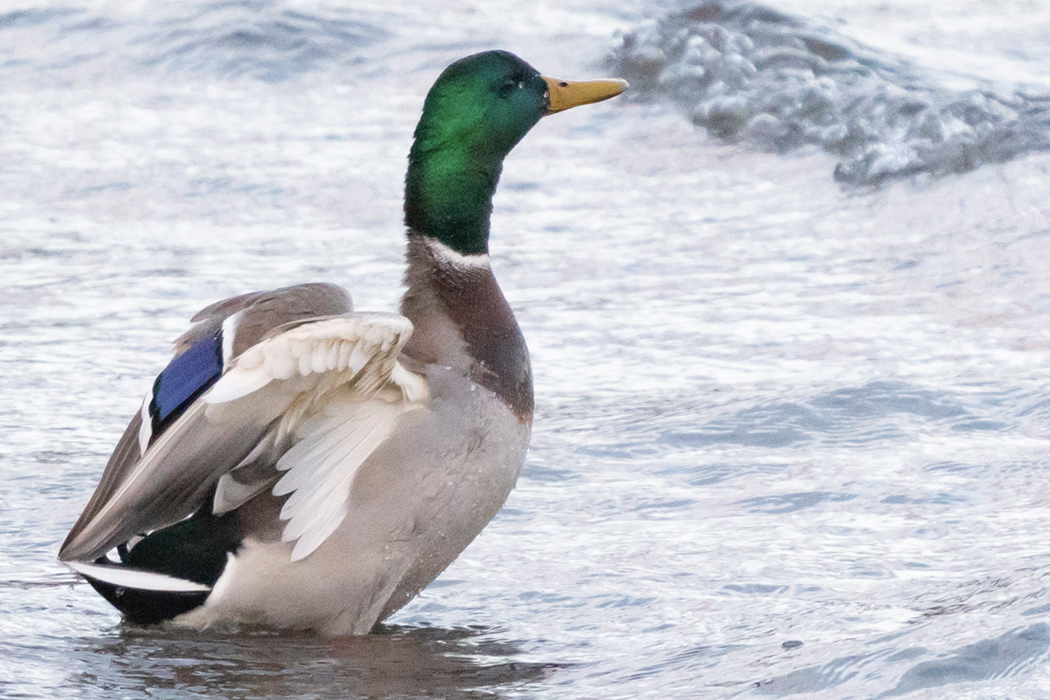
Mallard
The male's head is bright green.
| Scientific name | Anas platyrhynchos |
| English name | Mallard |
| Japanese name | 真鴨 |
| Classification | Aves |
| Classification details | Anseriformes Anatidae |
| Full length | 50-65cm |
| Distribution | Widely distributed in northern hemisphere. |
Characteristics
A duck that can be seen all over the country. The male's head is glossy green and continues down to the throat. There is a white ring around the neck at the throat. The chest is brown. The wings are whitish and the wing speculum is bluish purple. The beak is yellow, which is still distinguishable from females even in winter plumage.
Females are brown and mottled over the body. The beak is orange with black near the base.
Both males and females have orange legs.
Mallards and ducks
Ducks are of the same species as mallards.
The progenitor of the duck is the mallard, which was raised as poultry. Originating in China, it spread to Japan and England, where various varieties were produced.
Aigamo is a cross between a mallard and a blue-crowned duck, and is often kept in the wild, making it difficult to distinguish it from the mallard.
Calls
"Gee-ge-ge-ge" continues to cry.
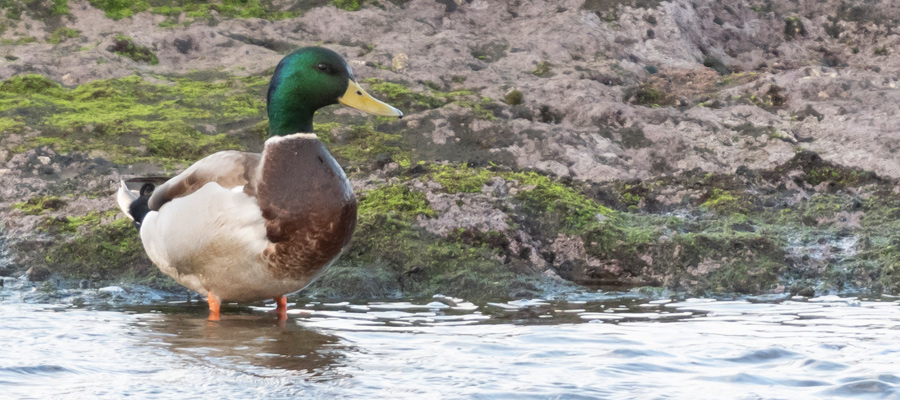
Ecology
They live in groups in rivers, lakes and harbors. They rest during the day and start looking for food in the evening. It feeds on plant seeds, aquatic plants, and shellfish in paddy fields and shallow waters. When looking for food, it sticks its head in without looking from the neck and looks for food while standing on its head. In spring, they move to the breeding season.
Habitat
In the early morning, I photographed them swimming in groups along the coast. They stood up and flapped their wings in shallow water where they could barely touch their feet. It was swimming relatively leisurely. There was a male alone on the beach a little further away.
Pictures
Introducing a picture of Mallard.
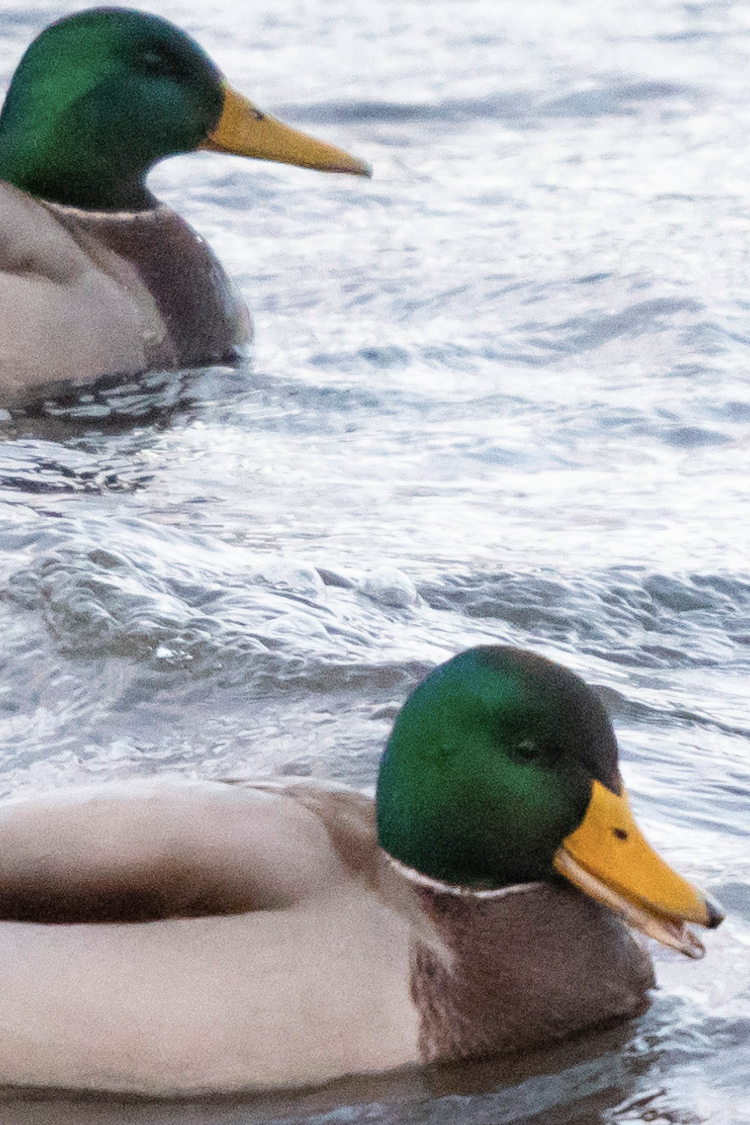
Picture book
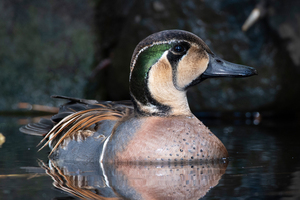
Balkal Teal
A face with a black, green, and brown Tomoe-shaped pattern......ead more.

Thornback cowfish
Blue spots spread all over the body.......ead more.

Mew Gull
Characterized by a high-pitched cry, American English name mew is the sound of a cat.......ead more.

Japanese Paradise Flycatcher
The long tail feathers of a male are three times as large as the body......ead more.
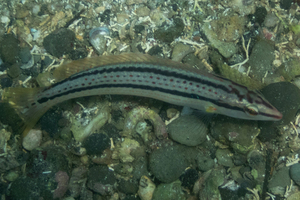
Multicolorfin rainbowfish
Reddish brown dotted line between the black lines.......ead more.
